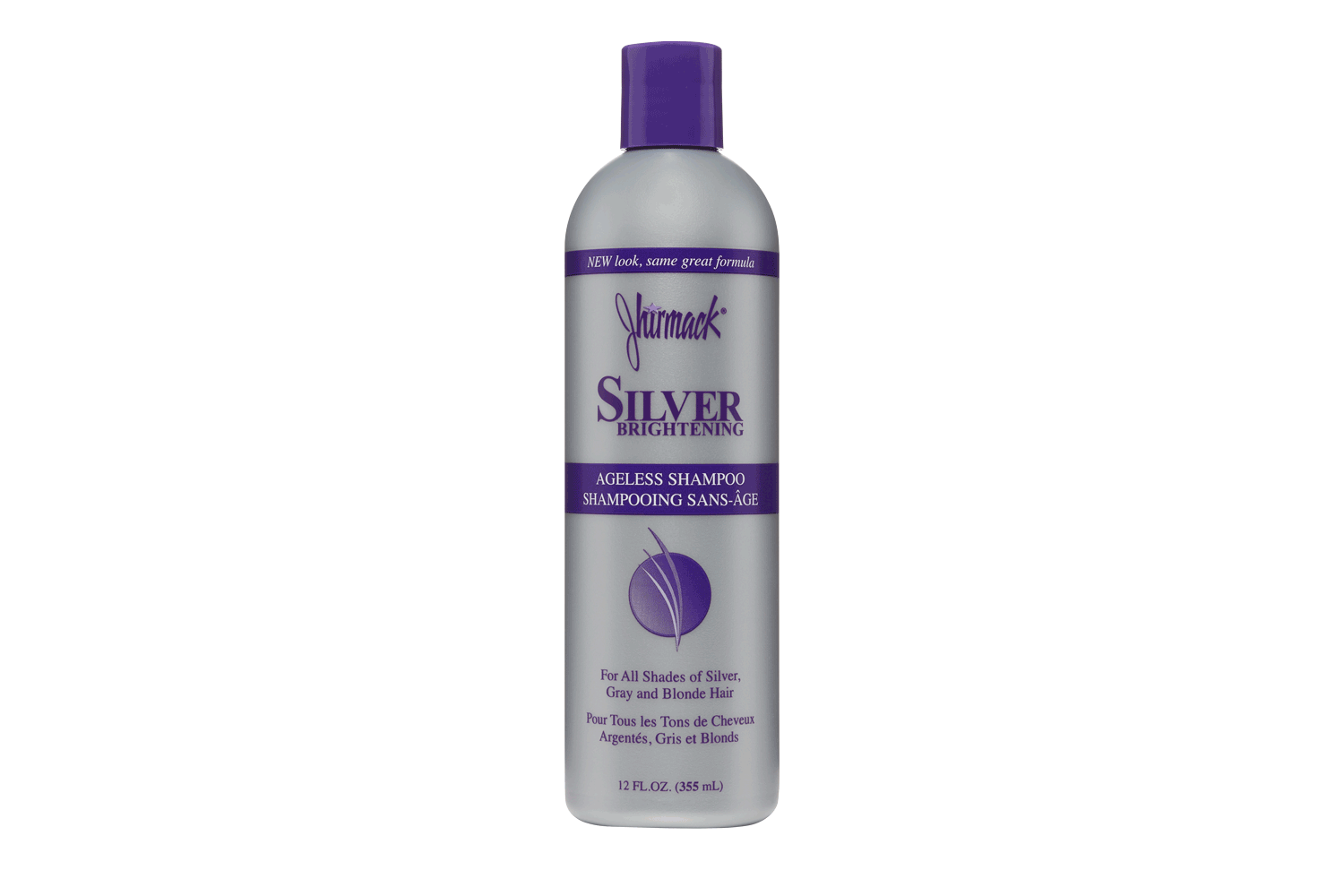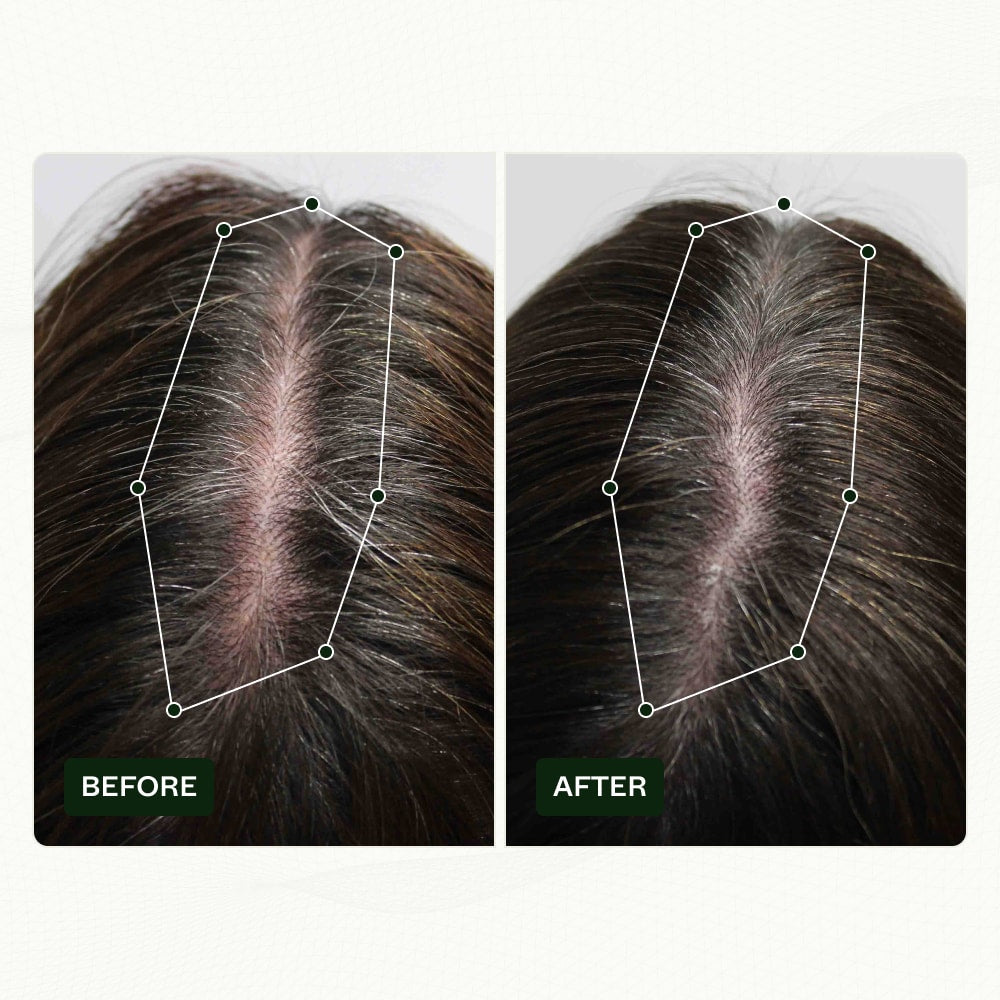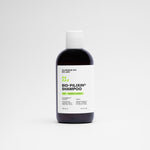Many women experience hair loss and thinning as they go through menopause.
But you don't have to accept it!
These are the 11 best shampoos for thinning hair due to menopause that works.
We've rated over 20 best shampoos for menopausal hair loss on 15 criteria to find the best ones.
Table of content
Does menopause cause hair loss?
Yes, menopause can cause hair loss. Menopausal hair loss is most commonly caused by hormonal changes that occur during menopause. As estrogen levels decline, the hair follicle may shrink, causing the hair growth cycle to slow down.
This can lead to the shedding of more hair than normal and thinning hair on the scalp.
Other factors that may contribute to menopausal hair loss include:
- Genetics: Women with a family history of female pattern hair loss (also known as androgenetic alopecia) are more susceptible.
- Stress: High stress levels can disrupt the hair growth cycle and cause excessive shedding.
- Medical conditions: Thyroid disorders , autoimmune diseases, and other conditions may trigger hair loss.
- Medications: Blood thinners, birth control pills, and other drugs may cause thinning as a side effect.
- Nutritional deficiencies: Low iron, zinc, amino acid, vitamin D, vitamin C, and vitamin A can impair hair regrowth and cause hair breakage.
- Hair styling: Excessive dyeing, bleaching, brushing, and heat styling can cause frizzy hair and damaged hair.
The hormonal change of menopause is usually the main culprit, but hair loss can be multifactorial during this time.
As your leading source for hair health information over the past 4 years, we never compromise on accuracy. When it comes to your health, you deserve information you can truly rely on - and earning your trust is our top priority.
Here's how Scandinavian Biolabs ensures every piece of content meets the highest standards of accuracy and integrity:
- Credentialed Experts: Our reviewers are actively practicing doctors and medical researchers
- Stringent Reviews: Content undergoes rigorous editing by subject specialists and review by a practicing doctor.
- Evidence-Based: We rely on well-established research from trusted scientific sources like peer-reviewed journals and health authorities.
- Full Transparency: Our editorial standards, writer credentials, reviewer credentials, correction process, and funding are all publicly documented.
- Independent Voice: While we do promote products, we operate in a vacuum to business operations. Our main goal is just an unwavering commitment to providing medically-sound guidance.
You can count on Scandinavian Biolabs to consistently deliver the trustworthy health information you deserve. Read our Editorial Standards.
Our ranking system
When reviewing the best shampoo for menopausal hair, we rank them based on 15 important criteria including clinical studies, customer service, low side effects, science-backed formulas, suitability for any hair type, natural ingredients, sustainability, money-back guarantees, value, availability, customer reviews, and being free of harmful chemicals.
Our top pick passed all 15 of these criteria making it thebest shampoo for menopausal dry hair and thinning.
11 shampoos for menopausal hair loss
Here are 11 best shampoos for thinning hair due to menopause & itchy scalp.
| Shampoo | Key Ingredients | How It Works For Menopausal Hair Loss | Special Features |
|---|---|---|---|
| Scandinavian Biolabs Hair Strength Shampoo | Capilia Longa, Niacinamide, Amino Acids, Caffeine | Reduces hair loss, improves hair density | 100% vegan, Free from sulfates, parabens, phthalates |
| Plantur 39 Phyto-Caffeine Shampoo | Caffeine, Phytoestrogens | Targets hormonal hair loss, stimulates hair growth | Formulated specifically for women over 40 |
| Pura D'or Anti-Hair Thinning Shampoo | Biotin, Argan Oil, Nettle | Reduces hair thinning, strengthens hair | Organic ingredients, Sulfate-free |
| ThickTails Stimulating Hair Shampoo | Caffeine, Biotin, DHT blockers | Promotes hair regrowth, blocks DHT | Designed for hormonal hair loss |
| Bellisso Biotin Shampoo and Conditioner | Biotin, Keratin | Promotes hair growth, strengthens hair | Sulfate-free, Includes conditioner |
| Alterna Haircare Caviar Anti-Aging Clinical Densifying Shampoo | Caviar Extract, Plumping Agents | Improves hair thickness, texture, and scalp health | Anti-aging, Free of parabens, SLS/SLES |
| Nioxin System 4 | Scalp Access Delivery System, Antioxidants, Biotin | Delivers denser-looking hair, nourishes scalp, protection against breakage | Tailored for colored hair and progressed thinning |
| Botanical Hair Growth Lab Shampoo | Essential Oils, Plant Extracts | Supports hair growth, scalp health | Organic, Vegan, Sulfate-free |
| Renpure Originals Biotin & Collagen Thickening Shampoo | Biotin, Collagen | Thickens hair, adds volume | Free from sulfates, parabens, gluten, and dyes |
| Jhirmack Silver Brightening Shampoo And Conditioner | Green Tea Extract, Folic Acid | Enhances natural color, improves texture | Designed for gray, blonde, bleached, or highlighted hair |
| Kérastase Densifique Bain Densité Shampoo | Hyaluronic Acid, Gluco-Peptide, Ceramides | Enhances hair density and volume | Luxurious formula designed for hair lacking density |
With these picks, you can safely and confidently say goodbye to dry hair, thinning hair and frizzy hair from menopause.
1. Scandinavian Biolabs Hair Strength Shampoo

Topping our list, the best shampoo for thinning hair due to menopause is none other than the Scandinavian Biolabs Hair Strength Shampoo.
You can witness an astounding clinically tested 93% reduction in hair loss and a remarkable up to 73% improvement in hair density with the Bio-Pilixin Serum. That's 9 out of 10 users.
Powered by nature.
Capilia Longa, derived from turmeric, alongside niacinamide, amino acids, and caffeine, strengthens and revitalizes your hair. These ingredients work together for thicker, shinier locks.
Vegan and safe for daily use.
Made in Denmark to the strict Scandinavian standards, our 100% vegan, cruelty-free formula is also free from sulfates, parabens, and phthalates.
Suitable for your hair types
Whether you have color treated hair, oily hair or curly hair, this shampoo is suitable for all hair types due to our gentle formula
Embrace Your Hair’s Potential
Say goodbye to thinning challenges. Welcome back strength, shine, and volume. Your journey to confident, youthful hair begins here.
2. Plantur 39 Phyto-Caffeine Shampoo'

Plantur 39's shampoo harnesses science-backed ingredients to support hair already weakening due to hormonal shifts.
While not a miracle solution, it offers a natural way to complement healthy lifestyle habits from within.
Those dealing with hair loss tied to menopause may find it helps improve hair's condition when used alongside a diligent self-care regime.
Overall customer feedback has been largely positive, but tolerance also varies from person to person.
3. Pura D'or Anti-Hair Thinning Shampoo And Deep Moisturizing Conditioner

PURA D'OR's shampoo and conditioner utilize natural compounds to complement hair's own regenerative processes from within. While not a magic solution, most customer feedback credits the routine with improvements like reduced shedding over time.
Those prioritizing organic ingredients in haircare may find this set helps promote hair health naturally in cases of thinning. However, only consistent use paired with a supportive lifestyle can reliably support genetic or medical causes.
Overall, it offers a generally well-tolerated option worth considering.
4. ThickTails Stimulating Hair Shampoo

ThickTails Shampoo aims to bolster hair already facing challenges through natural, tailored ingredients making it a great shampoo for perimenopause.
While not a solution for severe loss, most feedback describes improvements to volume and strength over consecutive uses. Its formulation deserves consideration among options for hormonal thinning.
However, only consistent trials paired with an overall healthy lifestyle plan can reliably nurture hair in addressing complex, multi-factorial causes of loss.
5. Bellisso Biotin Shampoo And Treatment Conditioner

This shampoo/conditioner did not achieve noticeable impacts for all users as formula tolerance can vary greatly.
However, gentle formulations with biotin and input from industry practitioners remain an option worth considering for some seeking dedicated thickening support.
Consistent use paired with a supportive routine offers the best chance of experiencing claimed outcomes.
6. Alterna Haircare's Caviar Anti-Aging Clinical Densifying Shampoo

Alterna Haircare's Caviar Anti-Aging Clinical Densifying Shampoo is crafted to address the challenges of fine hair, particularly for those experiencing age-related changes. This formula aims to provide a luxurious, nurturing experience while focusing on improving hair strength and density.
While it's not a complete solution for hair loss, it's designed to be part of a comprehensive approach to healthy hair growth, especially for aging hair.
The majority of users report satisfaction with the product, noting visible improvements, although individual experiences may vary.
7. Nioxin System 4

Nioxin System 4 is a specialized shampoo solution designed for noticeably thinning, fine, and chemically treated hair. It aims to rejuvenate hair by cleansing the scalp and providing thicker, fuller-looking hair.
It's part of a holistic approach to hair care, especially beneficial for those dealing with thinning related to various factors, including chemical treatments.
Reactions are predominantly positive with a few negative ones, with many customers appreciating the changes in their hair's appearance and feel.
8. Botanical Hair Growth Lab Shampoo

Botanical Hair Growth Lab offers an excellent shampoo for thick, strong, and healthy hair. This anti-hair loss organic formula is not only suitable for women experiencing hair fall due to menopause but also addresses androgenetic alopecia and postpartum hair loss.
It comprises more than 15 natural ingredients, including aloe vera leaf juice, apple stem cell extract, chamomile flower extract, green tea extract, argan oil, and rosemary oil.
Enriched with essential vitamins, this natural scalp-stimulating formula is free of SLS and parabens. Botanical Hair Growth Lab is the right choice for you if you are looking for a pure and natural product to fight hair loss.
9. Renpure Originals Biotin & Collagen Thickening Shampoo

Renpure Originals Biotin & Collagen Thickening Shampoo is a popular choice among women for volumizing and thickening menopausal hair.
This plant-based shampoo features biotin and collagen as primary ingredients that work together to thicken, volumize, nourish, and moisturize the scalp and hair.
Free from sulfates and parabens, this shampoo is gentle and safe for all hair types. By using Renpure's Thickening Shampoo, you can keep your hair healthy, thick, and shiny.
10. Jhirmack Silver Brightening Shampoo

This silver brightening shampoo is an excellent option if you are looking for a shampoo specifically designed for grey hair.
Formulated with green tea extract, folic acid, and CoQ10, this set also helps to strengthen hair, fight against heat damage and environmental pollutants, and reduce dry menopausal hair.
The macadamia nut oil in the set moisturizes the hair and scalp without leaving a greasy residue.
11. Kérastase Densifique Bain Densité Shampoo

Kérastase Densifique Bain Densité Shampoo is a good solution for those who want thicker, healthier-looking hair. It's infused with ceramides to protect your hair from damage and hyaluronic acid to increase hydration, leaving your hair silky and voluminous.
This shampoo's unique formula helps improve hair density, providing a more nourished scalp and lustrous hair. Regularly using this shampoo also helps reduce hair breakage and split ends.
It is a decent solution for menopausal hair thinning.
What's the best hair growth shampoo for menopause?
Our pick for the best shampoo for thinning hair due to menopause is the Scandinavian Biolabs Hair Strength Shampoo.
Here's why it's the perfect pick for menopausal thinning hair and itchy scalp:
- Combats Menopause Hair Loss: This shampoo for menopause gently cleanses your scalp, removing excess oil that can clog hair follicles and hinder growth.
- Natural Boost: Packed with nature-inspired ingredients, it nourishes your scalp to create a healthy environment for hair to thrive.
- Say Goodbye to Greasiness: No more limp, lifeless locks! This sulfate-free formula cleanses without stripping away natural oils, leaving your hair feeling fresh and vibrant.
- Daily Support: Gentle enough for everyday use, you can experience the fortifying benefits day after day.
- Luxurious Eucalyptus Aroma: Enjoy a spa-like experience every time you shower with the invigorating scent of eucalyptus.
It just happens to also top our test for the best shampoo for perimenopause hair loss.
How do shampoos for menopausal hair fall work?

The best shampoo for thinning hair over 60 typically contain biotin, keratin, caffeine, and essential oils to promote growth by improving scalp health and strengthening the hair follicle.
While biotin and caffeine have shown some promise in small studies , evidence of their efficacy is still limited.
Minoxidil and ketoconazole are common additions, which may help prevent hair loss through different mechanisms.
Though potentially effective, more research is needed on these shampoos to fully understand their benefits for treating hair loss.
What to look for in the best shampoo for thinning hair due to menopause?
When looking for the best shampoo for menopausal hair, consider an ingredient that helps balance hormones, stimulates hair growth, and strengthens the hair strands.
Some key ingredients include:
- Phytoestrogens: These plant-based compounds mimic estrogen and can help balance hormones.
- Biotin : A vitamin B that supports hair growth and strength.
- Caffeine: Stimulates hair strands and promotes growth.
- Keratin: A protein that strengthens hair strands and prevents breakage.
- Shea butter: Moisturizes the scalp and hair strands.
- Coconut oil: Moisturizes and reduces protein loss from hair.
- Castor oil: Promotes hair regrowth and increases blood circulation to the scalp.
- Saw palmetto: Contains fatty acids and sterols that can block DHT formation to prevent thinning hair.
Finally, choose a menopause shampoo free from harsh chemicals, such as sulfates and parabens, which can further damage hair and irritate scalp.
How to regrow hair from menopausal thinning hair?
While shampoos can help, more substantial thinning hair may require clinical-strength solutions. Here are some best products for menopausal hair loss, recommended by experts:
Bio-Pilixin
Our Bio-Pilixin® Serum has been specifically formulated to help reduce hair thinning associated with menopause.
As estrogen levels decline during perimenopause and menopause, it can lead to excess hair shedding and thinning.
This targeted serum contains a proprietary blend of plant growth factors and stem cell technology to nourish hair follicles impacted by hormonal changes.
Minoxidil
As the only FDA-approved topical for female hair loss, it stimulates regrowth by improving blood flow to follicles. Look for a 2 or 5% topical solution.
Low-Level Laser Therapy (LLLT)
This non-invasive treatment uses light therapy to boost cell metabolism and stimulate regrowth factors from the scalp. Multiple sessions are usually required but side effects are minimal.
Hair supplements
Supplements like marine collagen peptides, isoflavenes, and zinc target hair loss at the source with anodyne support. This can certainly build the foundation for thicker hair.
Platelet-Rich Plasma (PRP)
Using your own platelet-rich plasma, this technique harnesses healing properties to rejuvenate follicles from within. Typically a series of 3-6 monthly injections is needed.
Hair transplant
For thinning areas, follicular unit transplant (FUT) or follicular unit extraction (FUE) can restore a natural appearance by surgically placing hair grafts.
At home keratin treatment
Smooth keratin bonds temporarily repair hair shafts and add shine/volume to give the impression of fuller hair.
Diagnosing female hair loss can be complex, so an expert evaluation is important to determine the best customized, clinical-strength regimen for your thin hair concerns and regrowth goals after menopause.
Conclusion
Menopause and hair loss are frustrating.
That's why, with the help of experts, we've identified the best shampoo for menopausal hair loss and dry hair so you don't have to.







